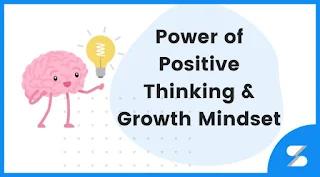Meta Description:
Explore the rising challenge of children’s mental health, its impact on anxiety, depression, and stress, and how parents are prioritizing emotional intelligence, open communication, and early intervention.
Introduction
In recent years, mental health has transitioned from a taboo subject to a mainstream topic of discussion. While this shift is commendable, one area demanding urgent attention is the mental health of children and teenagers. The growing awareness of mental health needs in young individuals is a pressing challenge that warrants collective action from parents, educators, policymakers, and society at large.
The Challenge: Understanding Children’s Mental Health Needs
Children and teenagers are not immune to mental health struggles. However, recognizing and addressing these needs can be challenging due to societal stigmas, lack of awareness, and limited access to resources. Recent studies reveal a startling increase in mental health issues among young people, with anxiety, depression, and stress leading the list of concerns. These challenges often stem from various factors, including academic pressure, social media influence, bullying, family instability, and global uncertainties like climate change and pandemics.
The Impact: Anxiety, Depression, and Stress
The consequences of untreated mental health issues in children are profound and far-reaching. Anxiety disorders, characterized by excessive worry and fear, can manifest in physical symptoms such as headaches, stomachaches, and sleep disturbances. Depression, often marked by persistent sadness and a loss of interest in activities, can affect a child’s academic performance, relationships, and overall well-being.
Stress, a more generalized issue, can accumulate over time, leading to burnout and a weakened ability to cope with daily life. When these issues are left unaddressed, they can escalate into more severe problems in adulthood, including chronic mental health conditions, substance abuse, and difficulty maintaining healthy relationships.
The Trend: Parental Focus on Emotional Intelligence, Communication, and Intervention
In response to this growing crisis, a significant shift is occurring in how parents approach their children’s mental health. The focus has shifted from solely academic and extracurricular achievements to fostering emotional intelligence, promoting open communication, and prioritizing early intervention.
1. Emotional Intelligence
Emotional intelligence (EI) is the ability to recognize, understand, and manage emotions. Parents are increasingly emphasizing the importance of EI, teaching children to identify their feelings and express them constructively. Activities such as mindfulness exercises, journaling, and role-playing scenarios help children build resilience and empathy. Developing EI equips children with the tools to navigate interpersonal relationships and cope with challenges more effectively.
2. Open Communication
Creating a safe and non-judgmental space for open communication is essential in addressing mental health concerns. Parents are encouraged to actively listen to their children, validate their feelings, and avoid dismissive remarks such as “You’ll be fine” or “It’s just a phase.” By normalizing conversations about emotions and mental health, parents help reduce the stigma surrounding these issues. Regular family discussions, one-on-one time, and even family counseling sessions are becoming common practices for fostering trust and openness.
3. Early Intervention
Early detection and intervention can significantly improve outcomes for children facing mental health challenges. Parents are learning to recognize warning signs such as sudden mood swings, withdrawal from social activities, declining academic performance, or changes in eating and sleeping habits. Consulting with pediatricians, school counselors, or mental health professionals at the first sign of concern ensures that children receive timely and appropriate support.
The Role of Schools and Communities
While parents play a pivotal role, schools and communities are equally important in supporting children’s mental health. Schools are incorporating mental health education into their curriculums, offering resources such as school counselors and peer support groups. Community organizations are also stepping up by hosting workshops, awareness creation campaigns, and providing access to affordable mental health services.
Social media platforms, often criticized for their negative impact on mental health, are also being used as tools for advocacy and education. Campaigns that promote mental health awareness, share personal stories, and provide resources are helping to create a more informed and empathetic society.
The Way Forward
Addressing the mental health needs of children and teenagers requires a multi-faceted approach:
-
Policy and Advocacy Governments and policymakers must prioritize mental health funding, create supportive legislation, and ensure access to mental health services for all children, regardless of socio-economic status.
-
Training for Educators and Caregivers Teachers, school staff, and caregivers need training to recognize mental health issues and provide initial support. Equipping them with the knowledge to handle such situations can make schools a safer environment for students.
-
Breaking the Stigma Society must continue to challenge the stigma surrounding mental health. Public awareness campaigns, celebrity endorsements, and open discussions can encourage more families to seek help without fear of judgment.
-
Technology and Innovation Leveraging technology, such as mental health apps and telehealth services, can bridge the gap for families in remote areas or those with limited access to professionals. Virtual support groups and AI-driven tools for early diagnosis are emerging as valuable resources.
Conclusion
The rising awareness of children’s mental health needs is both a challenge and an opportunity. While the increasing cases of anxiety, depression, and stress among young people are alarming, they also highlight the urgent need for proactive measures. By focusing on emotional intelligence, fostering open communication, and prioritizing early intervention, parents and society can help children lead healthier, happier lives. Together, we can create a world where mental health is not just an afterthought but a fundamental part of growing up.
We at RESCA Parenting: Mastering the Art, offers support to individuals, families and institutions on mental health awareness as the growing needs of children and teens is addressed. Contact us through giving a comment to this article and we will get in touch.










